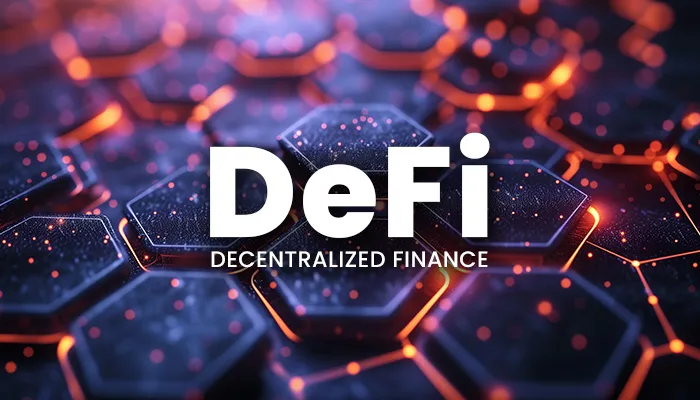
As the financial world transforms under the disruptive force of blockchain and DeFi, one of the older pillars of finance, Islamic banking, finds itself at a crossroads, facing both opportunities and challenges. This blog post will serve as a comprehensive guide to understanding how Islamic finance intersects with the uprising of decentralized finance and how it is shaping the financial landscape for Islamic adherents and beyond. We will explore the intricacies of blending the principles of Sharia law with the innovation of blockchain technology and analyze the potential of this fusion to redefine financial systems and services.
Introduction to DeFi and Islamic Finance
DeFi represents a financial system based on open and decentralized networks, which eliminates the need for traditional middlemen such as banks or brokers. Smart contracts on blockchains like Ethereum automate the processes, ensuring transparency and reducing the scope for human error or manipulation. DeFi, still in its nascent stage, has gained a significant following for its promise of financial inclusion and democratization.
Islamic finance, on the other hand, stands on the principles of Sharia, centered around the prohibition of riba (usury) and engaging in business activities that do not involve gambling (maisir) or uncertainty (gharar). It encourages risk-sharing, asset-backing, and the overall promotion of economic well-being in the community.
DeFi and Islamic finance may appear diametrically opposed due to the conventional finance structures that have helped shape the tenets of Islamic financial law. Yet, the two are not incompatible; when DeFi services are tailored to adhere to Sharia principles, they open a new chapter for Muslim investors who wish to participate in the burgeoning blockchain economy while staying true to their religious values.
Sharia-Compliant DeFi Products and Services
The emergence of Sharia-compliant DeFi products and services is crucial in establishing a foothold for the Islamic community in the DeFi space. Several DeFi platforms have taken steps to ensure compliance with Sharia law, which includes the avoidance of interest-bearing debt, the prohibition of excessive uncertainty, and promoting ethical investments.
These services include DeFi platforms that offer peer-to-peer lending without accruing interest, decentralized exchanges that avoid transactions involving haram (prohibited) assets, and token offerings that adhere to strict guidelines related to transparency and ethical frameworks.
Developers must carefully review and adapt DeFi protocols to align with these principles, and in doing so, they not only open up their products to an underserved Islamic market but also increase the ethical integrity of their platforms.
Risk Management in Islamic DeFi Platforms
Risk management is a particularly salient issue in Islamic DeFi due to the mutual abandonment of guaranteed returns and the shared responsibility between parties in financial transactions. The absence of interest in Islamic finance requires innovative approaches to risk mitigation, such as takaful (Islamic insurance), cooperative structures, and enhanced due diligence in the selection of investment vehicles.
In the DeFi context, smart contracts can automate risk-sharing agreements and transparently allocate the responsibilities and profits according to Sharia-compliant terms. Decentralized autonomous organizations (DAOs) embody the characteristic elements of shura (consultation) and mutual consent, further promoting risk management and community governance.
The Potential of DeFi in Islamic Banking
DeFi presents a unique opportunity to revolutionize Islamic banking by integrating blockchain technology. Smart contracts could streamline the creation of Sharia-compliant financial products, aiding in trade facilitation, real estate transactions adhering to the rules of Islamic mortgage financing (murabaha), and the development of innovative liquidity management tools.
Islamic banks, traditionally asset-heavy, can benefit from entering the DeFi space by accessing a broader range of investment opportunities. In turn, this could lead to greater returns for their depositors and shareholders while ensuring compliance with Sharia principles, thus fostering trust and credibility.
The synergy of Islamic finance and DeFi can not only enhance the efficiency of existing financial services but also create new avenues for wealth creation, contributing to the social and economic development of the Islamic community.
Legal and Regulatory Considerations
Integrating Islamic finance with DeFi requires careful navigation of legal and regulatory frameworks. The decentralized and global nature of DeFi often presents challenges in aligning with local Islamic finance laws and regulations, which vary among different jurisdictions.
Transparency and regulatory oversight are essential, as Sharia-compliant DeFi platforms must verify and ensure that transactions strictly follow Islamic financial principles. Collaboration between legal experts, Islamic scholars, and technologists is critical in establishing a robust legal framework that protects the interests of all stakeholders.
Regulators need to recognize the nuances of Sharia law and work closely with the DeFi community to develop guidelines that balance innovation with compliance, without stifling the potential of these financial services.
Vision for the Future: Islamic Finance and DeFi
Looking ahead, the future of Islamic DeFi is one that holds great promise. The creation of an Islamic DeFi ecosystem could offer not just financial products but an entire financial infrastructure underpinned by the values of transparency, equitable risk distribution, and social good.
For the global Islamic community, DeFi could mean access to a financial system that respects their cultural and religious norms while providing the benefits of a borderless and inclusive financial network. This entails a paradigm shift in the approach to financial services, with a renewed focus on values such as fairness and the common good, thus fostering a new era of Islamic finance that is both modern and rooted in tradition.
In conclusion, the intersection of Islamic finance and DeFi stands at the precipice of significant change. The transition to a more technologically advanced and ethically centered financial system is complex, but not insurmountable. Through thoughtfully crafted products, education, and collaboration, Islamic DeFi can bridge the old with the new, serving as a model for compatibility and innovation across cultural and religious paradigms in the financial world.
